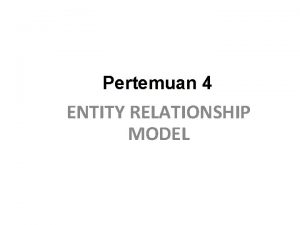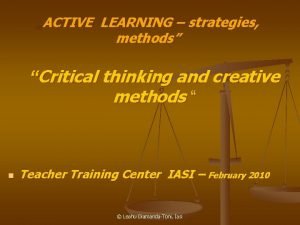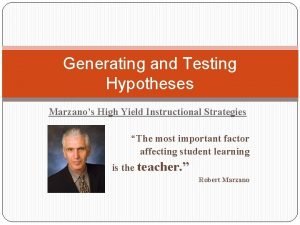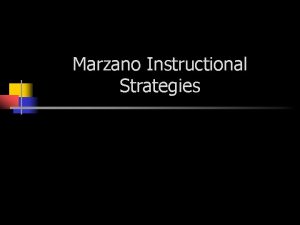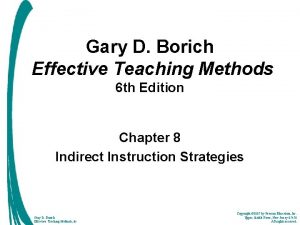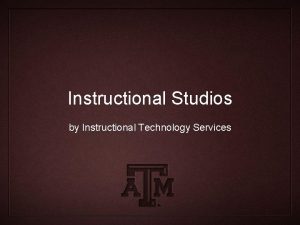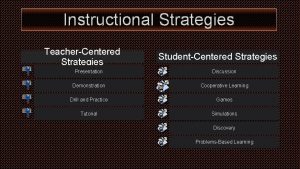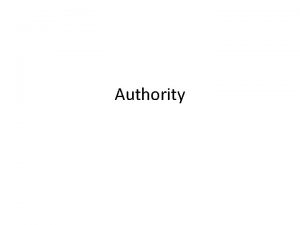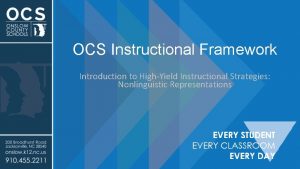INSTRUCTIONAL STRATEGIES THAT PROMOTE PARTICIPATION Using questions to







- Slides: 7

INSTRUCTIONAL STRATEGIES THAT PROMOTE PARTICIPATION Using questions to check for understanding

Response Cards Used by each student in class; teacher can easily check for understanding of each individual 2 types: � Pre-printed (responses already on cards) Examples: Yes/No, alphabet cards, cards with vocabulary words or important concepts from content area � Write-on (blank, allow students to generate response) Examples: white boards/dry-erase boards, index cards, magnetic boards

Hand Signals Each student uses a designated hand signal to indicate understanding Examples: � Thumbs up (I understand can explain), Thumbs sideways (I’m not completely sure), Thumbs down (I don’t understand) � Fingers up (1 -5) indicating how well students understand at each point of solving a problem (5 figures= got it, 2 -4= somewhat, 1=lost/don’t know)

Audience Response Systems Hand-held devices/controls for each student that allows him/her to respond to questions Responses are scored in real time and students receive immediate feedback Incorporates technology, questions, and systems for checking for understanding Now there apps to obtain the same end: https: //www. youtube. com/watch? v=Xgz 0 c 0 s_ w 6 A

Re. Quest (Reciprocal Questioning) Teach students to ask and answer questions as they read Procedure: � Teacher leads class in reading text silently � Students ask teachers questions about text read � Next section of text read silently � Teacher questions the students � Continue taking turns back and forth, alternating between responding and questioning

Socratic Seminar Dialectic in nature- examines opinions/ideas logically through question and answer Considerations: � Text: selected for ability to engage students in discussion � Question: seminar begins with a posed question (no right or wrong answer) where responses should generate new questions � Leader: participant and facilitator; demonstrates “habits of the mind” leading to reflective exploration of text � Participants: responsible for quality of seminar discussion; listen actively, share ideas/opinions/questions

D. Fisher & N. Frey. (2007). Checking for understanding: Formative assessment techniques for your classroom. Alexandria, VA: ASCD

